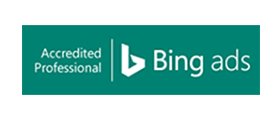Google has done a pretty good job of scaring webmasters of late with it’s Penguin and Panda updates. On the back of this, many sites have been penalised due to poor onsite SEO strategies and have lost rankings for specific keywords due to bad linking or manipulative link strategies. But, now that the dust has settled a little, people are beginning to ask the question whether links are still important for SEO in a post-Penguin landscape.
Links Still Matter
This is a no brainer so I have no intention of stringing you along to the end of the article. Links still matter, they matter a whole lot and if you are going to do well, you are going to need a bunch of links to your site. That said, a few things have changed and some of what did work, does not any longer and if you are interested in longevity of your site then you need to be a whole lot more careful with how you build links.
Search engine ranking factors
To put this into perspective, and show you how important links are we will review some of the evidence and every couple of years, our pals over at SEOMoz do a study on the latest search engine ranking factors. This study uses some data from the linkscape index along with the thoughts and opinions of the biggest companies and consultants in the business. This is doubly useful in that it not only gives us some feedback on just what is important to rank a site and pages on that site but it also gives us some historical comparison against the previous years to frame the slow, gradual changes in the ranking algorithm.
The diagram below shows us the ranking factors (as determined by SEOMoz) for 2011 which is still, pretty much relevant now.

If we take a look at this diagram we can see that the two biggest ranking metrics making up a whopping 42.5% are link based metrics. To further illustrate the importance of this, the next two metrics making up a further 25% of the overall pie are related to keyword usage on the page and the site as a whole which really, you have no excuse to get wrong as it is 100% under your control. So, based on this leading industry study, the two most important ranking factors are entirely link based.
2011 vs 2009
Now, this gets a little more interesting when we compare this against the broad ranking factors for 2009.

The first two factors, at around an even 45% are pretty much the same and we have the trust relevant to the site itself and then the link popularity of the specific page. Then, we have another 20% relevant to the anchor text of the external links making our overall link driven factors somewhere around 65% of the driving factors behind rank.
Links = Votes
So, clearly, links still matter. The anchor text on those links may not be quite so important as it once was but the links themselves are still needed. Links indicate the relationship and social standing of your site, and more importantly your content within the larger ecosystem that makes up the large, social network that is the web.
Google is getting ever better at identifying and taking away the benefit from manipulated links and seemingly, is so confident, they are now moving towards penalising those that abuse the system so links are going to work better if they are also from trusted sources.
Drop Anchor
Everyone pretty much knows that anchor text worked like crazy for a while. Hell, back in the day, site wide links with exact match anchor text on a couple of sites would give you a huge boost, but Google, quite rightly has been chipping away at that for a while now. Even in 2011, before this whole Penguin link penalty, anchors were not providing that kind of benefit any longer, so much so that the general advice was to build quality not quantity and focus on branded links to the homepage of your site rather than aggressive exact match anchor text.
You need good links
In a nutshell, you need good links. You need to do this in a non-manipulative way and ultimately this harks back to the original white hat SEO moto of Content is King. Content is Jack, Queen, King and Emperor in fact. Whether this is content you submit to other sites as guest posts, content you write to get shared and linked to or something else entirely, the best way to build authoritative links is to write authoritative content (or have someone do it for you).
Anchor text is still likely to be a strong factor but you no longer want lots of exact match and certainly not to the homepage of the site. In fact, you want lots of very strong and topically relevant articles on your site and lots of natural linking from external sites which will very likely contain lots of partial match anchors from people linking up whole sentences. It would not be unusual for someone to link to this article with something like ‘how important are links for SEO‘ or ‘how important are links‘ in the context of a larger sentence and that is really what you want. In fact, Google is incredibly savvy when it comes to synonyms and the like so the more varied (read natural) the anchor text across your links to a given page, the more weight it is likely to carry.
This has all happened before and will all happen again
Ultimately, if you have a solid inbound marketing strategy, and are using various channels to drive people to your conversion driven landing pages, then you are likely already doing this but if you created a simple website based on your brochure, figured out a couple of keywords that were interested then paid a company to build you a bunch of exact match links then… your days of that working out for you are numbered, if not already over.
If you have any questions please drop a comment below and if you need some help building links or getting a successful search strategy in place then give me a shout. Oh, and please share this article, someone may see it in your social feeds and link to it after all!






